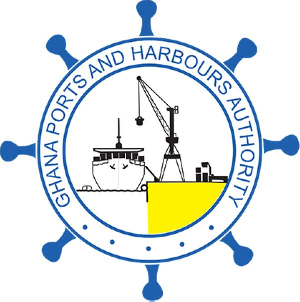Ho, May 12, GNA-Mrs. Adelaide Addo-Fenning, Voluntary Service Overseas (VSO) Regional Programme Manager for West and Central Africa, noted that no country including Ghana could afford to avoid voluntarism in efforts aimed at rapid development.
She said one's readiness to offer voluntary service in whatever capacity should be the yardstick for gaining recognition as an active citizen . Mrs Addo-Fenning was presenting a paper on "Redefining Voluntarism: The Year of The Sabbatical" at a ceremony to mark the seventh year of The Legal Awareness Programme (LAP-VR) in Ho on Tuesday. LAP-VR is a project of Women In Law and Development in Africa (WILDAF) supported by the Netherlands Development Agency (SNV). Mrs. Addo-Fenning, who was until recently the Country Director, VSO, Ghana, called on the people to rekindle their voluntary spirit and to actively participate in LAP-VR projects to promote democracy and good governance in the country.
She said: "rather than be an adhoc activity carried out when a situation arises.... voluntarism can be used or planned as a project intervention."
Mrs. Addo-Fenning said advocacy for volunteerism had been successful in getting more teachers to the northern part of the country than any other efforts or interventions by government.
She said 300 volunteers had been mobilized through the collaboration of the VSO and the National Service Secretariat for the Northern, Upper East and Upper West Regions, where for the first time, some schools started the academic year with the adequate number of teachers.
She said voluntarism was a practical way of getting involved in the development process adding, "it is a way to practice nationalism". Mrs. Addo-Fenning said volunteers should not be motivated by monetary gains but they should consider their respective roles as the fulfilment of national objectives and dismissed the notion that people engaged in such activities because they were unemployed. She said: "community volunteers are even more effective sometimes than paid staff of some organisations because the volunteers understand and share the concerns of the people who benefit from their volunteerism".
Mrs. Addo-Fenning urged volunteers to work beyond the implementation period of projects towards sustaining the objectives and goals of the programmes.
She noted government alone could not ensure national development and called on Ghanaians to complement efforts being made by the authorities to move the country forward.
Mrs. Hilary Gbedemah, the outgoing Senior Legal Advisor of the LAP-VR, said the Project had trained women and men as Legal Literacy Volunteers (LLVs) for all districts in the Volta Region to work towards the elimination of gender inequality.
She said the group was taking through lessons on family law, violence against women, domestic violence, health law, paternity and inheritance laws.
Mrs Gbedemah said the project had set up committees in the Nkwanta District to mediate in gender related issues based on their knowledge of the law.
She said a youth component of the programme, with sponsorship from UN Systems Gender Programme, was being actively pursued to introduce young people in schools to gender issues early enough. Mrs Gbedemah said an art competition on forms of gender violence among the youth clubs known as "Legalites" indicated that women were the main victims of domestic violence.
She said the two-day programme would also review the Legal Awareness Programme over the seven years in the region. Religious organizations, queen mothers, the National Council on Women and Development (NCWD), Department of Social Welfare, and the Ghana Bar Association (GBA and the 31st December Women's Movement attended the ceremony.
Others groups included the Women and Juvenile Unit of the Police Service (WAJU), Commission on Human Rights and Administrative Justice (CHRAJ), the Media personnel, the Asogli State and National Commission for Civic Education (NCCE)
A debate on the consequences of the legalization of prostitution and compulsory testing for HIV/AIDS on the fight against HIV/AIDS will be organised on Thursday as part of the programme for the ceremony.
General News of Thursday, 12 May 2005
Source: GNA












